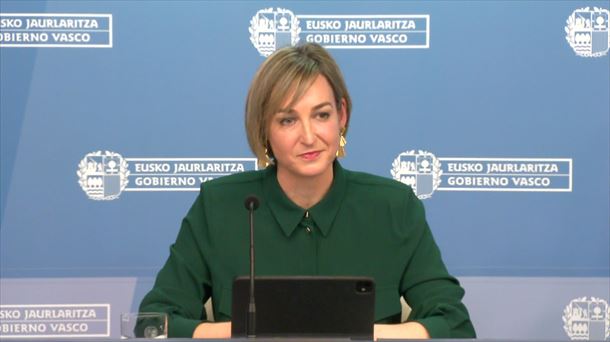“I am surprised that we found out about this matter through the media before the court itself communicated the verdict to us. That is remarkable, we will leave it at that,” said the Navarrese president.
The president of Navarre, María Chivite, has appreciated its value Supreme Court decision (TS), which annulled the Royal Decree agreeing on the transfer of powers in the field of traffic matters from the Guardia Civil to the Provincial Community of Navarra, by dismissing the appeal brought by the Civil Guard Justice Association (JUCIL) honor. Chivite believes that “the Supreme Court’s position has changed because today’s ruling is inconsistent with previous case law.”
“It surprises me that we found out about this matter through the press, through the media, before the court itself had communicated the verdict to us, something that it seems curiouslet’s leave it at that,” the Navarrese president said in a public appearance.
The Navarrese president has stated that the executive branch will formulate the “necessary mechanism” to move forward with the “unanimous commitment to promote self-government” with the presumption of traffic jurisdiction.
Chivite has recalled that the transfer of traffic to Navarra was agreed and committed by the Spanish government in 2000. Then-President José María Aznar met with the former President of Navarre and leader of UPN, Miguel Sanz, to agree that this would give the Foral community “exclusive powers in the field of traffic and its civil management in the period 2000-2001.”
The Navarrese president has placed particular emphasis on the fact that “the Supreme Court’s ruling does not correspond to the previous case law of the Supreme Court itself.” Chivite believes the Supreme Court has “corrected itself” because “there is prior case law from 2018 in the other direction.”
In this sense, he explained that the current ruling confirms that Navarre does not have sufficient powers in the field of traffic. But “the Navarra provincial police have historic powers in the field of traffic,” he recalled. “The first supplementary provision of the Constitution protects, respects and recognizes the historical rights of the provincial areas. This provision is sufficient title to effect a transfer, according to the previous case law of the Supreme Court: in particular the judgments 219/2018, February 13, and 379/2018, March 7he emphasized.
Likewise, he believes that the Supreme Court’s ruling “does not rule out that the transfer can take placebut considers the procedure previously inadequate.”
In fact, the TS, in the words of the Navarrese president, opens the door for Navarre to receive the transfer in a different way. “Consequently, a Royal Transfer Decree cannot be used to grant a jurisdiction not recognized to Navarre in the LORAFNA or not protected by historical law. It can take over this power, but either by reforming the LORAFNA or through an organic law of Article 150.2 of the Constitution,” the sentence reads literally.
Chivite has assured that they will work with the rest of the parliamentary groups, as it was a unanimous decision of the Transfer Board, to look for one of the possible formulas for regulatory change to achieve traffic competition for Navarre.
Source: EITB
I am Ida Scott, a journalist and content author with a passion for uncovering the truth. I have been writing professionally for Today Times Live since 2020 and specialize in political news. My career began when I was just 17; I had already developed a knack for research and an eye for detail which made me stand out from my peers.



